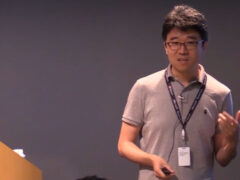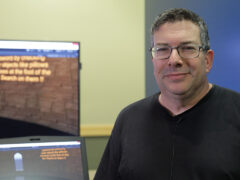CPU & DRAM Bugs: Attacks & Defenses
In the quest for higher performance, modern CPUs make heavy use of speculative execution. Unfortunately, speculative execution opens the possibility of side-channel attacks in which malicious parties can read the memory of co-located processes, OSes, and VMs (e.g., Meltdown, Spectre). Similarly, in the quest for higher memory capacities, modern DRAMs have drastically increased the density of memory cells on a chip. This high cell density opens the possibility of attacks that cause bit flips in DRAM (e.g., Rowhammer). A single bit flip is sufficient to lead to serious security breaches, such as privilege escalation, remote login, or factoring an RSA private key.
Unfortunately, no single silver bullet for stopping these types of attacks exists. These attacks all stem from hardware “bugs.” While fixing each particular bug is feasible, the hardware life-cycle is very long, and the fixes often come with serious performance and cost overheads. Software-based fixes offer a faster response, but also may impose significant overhead. The goal of this session is to discuss the state of the art techniques in performing such attacks and defending against them using both hardware and software.
Speaker Details
- Date:
- Speakers:
- Stefan Saroiu, Christopher Ertl, Margaret Martonosi, Onur Mutlu, Alec Wolman
- Affiliation:
- Princeton University
-
-

Alec Wolman
Partner Research Manager
-

Stefan Saroiu
Senior Principal Researcher
-
-
Series: Microsoft Research Faculty Summit
-
-
Quantum Computing and Workforce, Curriculum, and Application Development: Case study
Speakers:- Krysta M. Svore,
- Martin Roetteler
-
-
-
-
Crowd, Cloud and the Future of Work: Updates from human AI computation
Speakers:- Besmira Nushi,
- Vani Mandava
-
-
-
-
-
Empowering People to Achieve More: How Useful a Concept is Productivity?
Speakers:- Brendan Murphy
-
-
Productivity in Software Development
Speakers:- Neel Sundaresan,
- Margaret-Anne Storey,
- Prem Kumar Devanbu
-
-
-
-
-
-
-
Accessible Virtual Reality
Speakers:- Eyal Ofek
-
Calendar.help: A Virtual Meeting Scheduling Assistant
Speakers:- Pamela Bhattacharya
-
Visual Studio IntelliCode
Speakers:- Mark Wilson-Thomas
-
Microsoft Teams: Collaborate with Any Researcher Anywhere
Speakers:- Jethro Seghers
-
Project Alava: Programming Webs of Microcontrollers
Speakers:- James Devine,
- Teddy Seyed
-
AI in PowerPoint
Speakers:- Kostas Seleskerov

























